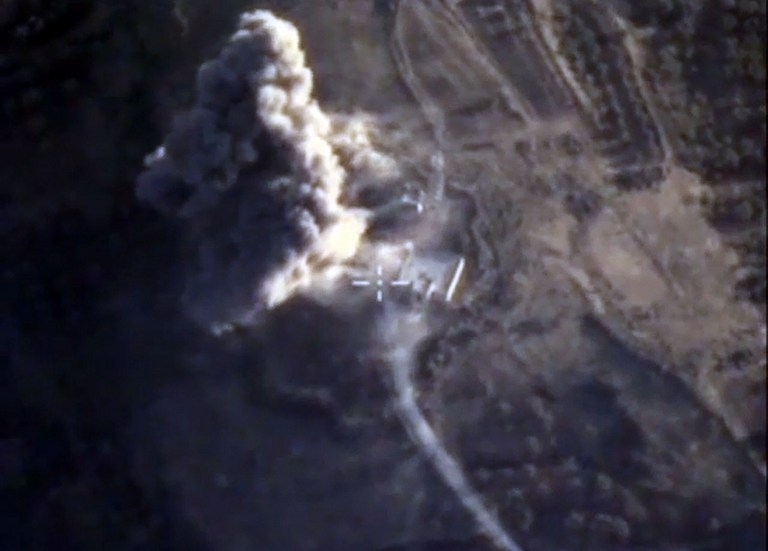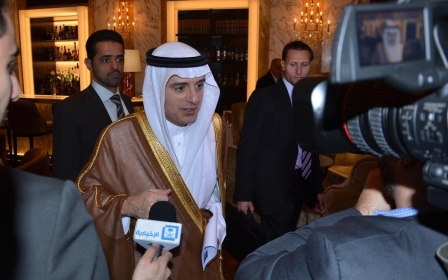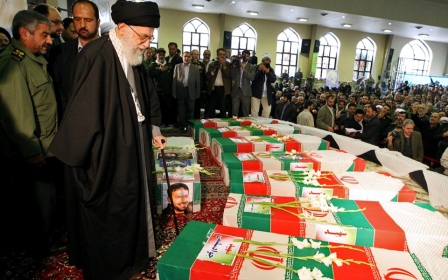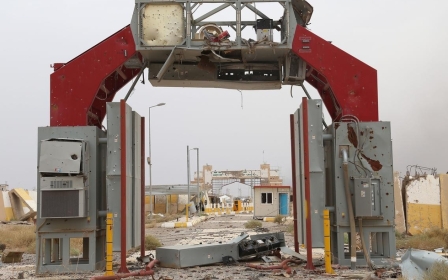Russia's Syria intervention renews push for a safe zone

LONDON - After five years of civil war, the best option to protect Syrian civilians, said a former US special advisor for transition in Syria and an expert close to the Obama administration on Wednesday, is an old one.
Russia's month-old bombing campaign in Syria, which has seen more than 450 Syrians killed and created 100,000 new refugees, has made the need for a safe zone in northern Syria crucial, Steven Heydemann, a professor of Middle East studies at Smith College and formerly the vice president of Applied Research on Conflict at the US Institute of Peace, told an audience at the British parliament.
Long pushed by Turkey, the safe zone idea is being revisited in Washington, London and other capitals, particularly since the dramatic military entrance of Russia into the Syrian civil war, although it remains a divisive option.
Late last month, German Chancellor Angela Merkel warned such a zone would put refugees at risk of being massacred if security could not be guaranteed. And some experts have suggested that Russia's air campaign in Syria has made a no-fly zone all but impossible.
While Russian involvement in Syria raises the risks related to such a safe zone, Heydemann said, "it is precisely Russia's intervention and the futher erosion of civilian security and the increase in the refugee flow that has made the need for a safe zone more urgent".
"Unless you can provide a modicum of protection for Syrian civilians, nothing good is going to happen in Syria," said Frederic Hof, a senior fellow at the Atlantic Council and a former special advisor for transition in Syria under former Secretary of State Hillary Clinton.
"We cannot have negotiations if the constituents of one side are starving and being vaporised and blown away on a daily basis."
Hof and Heydemann were part of a group who spoke on Wednesday in the British Parliament as photos documenting systematic torture and murder by the Assad government, smuggled by a former military policeman known only as "Caesar," were on display.
Daily, between 2011 and 2013, Caesar snuck out flashdrives of the photos that since been cited by a UN body as clear evidence of systematic human rights violations by the Assad government and could be used as evidence for future legal proceedings.
Some of the more than 55,000 photos of approximately 11,000 Syrians tortured have been shown at the US Congress, the European Parliament in Brussels and the Holocaust Memorial Museum in Washington, DC.
Caesar, Hof said, "had the temerity to believe that the West would care for the Syrian people if they knew what was happening. His faith remains unrewarded."
Turmoil in Washington
How a Syrian safe zone could actually be established remains unclear, particularly given lacking American leadership on Syria, said Chris Doyle, director of the Council for Arab British Understanding.
With Russian ships in the Mediterranean and planes flying out of Syrian military airfields, either the US and Russia would need to agree to a safe zone or the US would have to impose it with significant amounts of weapons on the ground, Doyle said. Both options require American political will that has lacked until now, he said.
"Obama is not even defending the opposition. Russians are bombing them and what is the US doing? Nothing," Doyle said. "So where is this new determination suddenly going to come from?"
Turkey, France and the UK could attempt to create a safe zone by themselves, he added, but they would also then need to commit to facing Russia on their own, which is unlikely.
Hof described a Washington admininistration "in a great deal of turmoil and unrest" over Syria policy, yet one reluctant to go beyond rhetoric.
"The president comes into this with the view that Iraq 2003 in many ways is the quintessence of America abroad. Therefore, avoiding the doing of stupid stuff is a sort of foreign policy doctrine of its own," Hoff said.
"There are senior officials who, to put it mildly, are not happy with the approach," he said.
But Heydemann suggested, with the Iran nuclear deal on the horizon and positive signs out of the Geneva process that differences between Russia and the US over Syria were bridgeable, Obama may have anticipated a much different scenario than what has played out.
As recently as August, he said, Russia and the US were having active conversations specifically on the time table for the removal of Syrian President Bashar al-Assad. Russian sources have indicated to him that Moscow's decision to intervene in Syria was a hasty one.
Whatever the truth, the intervention has forced a US recalibration and "a willingness to rethink options as this new, much grimmer context seems to take hold," Heydemann said. "Whether it will push them far enough to take some of the decisive steps, I think remains unclear."
Five-nation solution?
On Friday, talks between the key players in the Syria crisis - including Russia, the US and Saudi Arabia - are scheduled to reconvene in Vienna - and this time, they will include Iran.
Many have suggested that these talks could be the silver bullet for the Syrian crisis. In a New York Times opinion piece headlined 'a five-nation plan to end the Syrian crisis' published last week, former US President Jimmy Carter revealed Russian President Vladimir Putin told him that "the only real chance of ending the conflict was for the US and Russia to be joined by Iran, Turkey and Saudi Arabia in preparing a comprehensive peace proposal".
Russia's decision to support Assad and fight in Syria, Carter said, "has helped to clarify the choice between a political process in which the Assad regime assume a role and more war in which the Islamic State [IS] becomes an even greater threat to world peace." Russia, Iran, Turkey, Saudi Arabia and the US "could formulate a unanimous proposal. Unfortunately, differences among them persist."
The differences are likely to persist, said Heydemann, who cautioned seeing the negotiations as the most hopeful course of action, certainly not in the short term.
Russian Foreign Minister Sergei Lavrov has previously said fighting terrorism and achieving a political transition are tracks that could be run simultaneously in Syria. But now, that language, Heydemann said, has changed.
"What we hear is that it is important to resolve the terrorism problem first and I find that to be quite disturbing," he said. "I think it suggests that some of the assumptions guiding US policy about the possibilities for bridging differences may be a bit over-optimistic."
Rather than a resolution to the civil war or a transitional plan, Hof said he expected that negotiations between the countries would produce some sort of protection for Syrian civilians.
"Iran and Russia for their own reasons wish to perpetuate Assad," he said. "Would they be willing to lean on their client to take off some of the sharp edges of his mass homicide survival strategy? That is a possibility."
Alternatively, Hof said Obama could be clear about the outcome he wants in Syria, which would set the Department of Defence in motion to give him options with various degrees of risk.
"A no-fly zone might be an option, sea zone deterence might be an option, arming people in Syria," he said. "There are any number of options out there, but what it requires is a clear statement of the commander's intent to his team in order to get options that he can actually take action on."
He added: "I would not be in favour of us going out of our way to have a confronation with Russia in Syria. But this issue - the protection of Syrian civilians - both on a humanitarian level and as a war fighting necessity against ISIS makes it mandatory that we not shrink from confrontation if this is the Russian choice."
New MEE newsletter: Jerusalem Dispatch
Sign up to get the latest insights and analysis on Israel-Palestine, alongside Turkey Unpacked and other MEE newsletters
Middle East Eye delivers independent and unrivalled coverage and analysis of the Middle East, North Africa and beyond. To learn more about republishing this content and the associated fees, please fill out this form. More about MEE can be found here.




